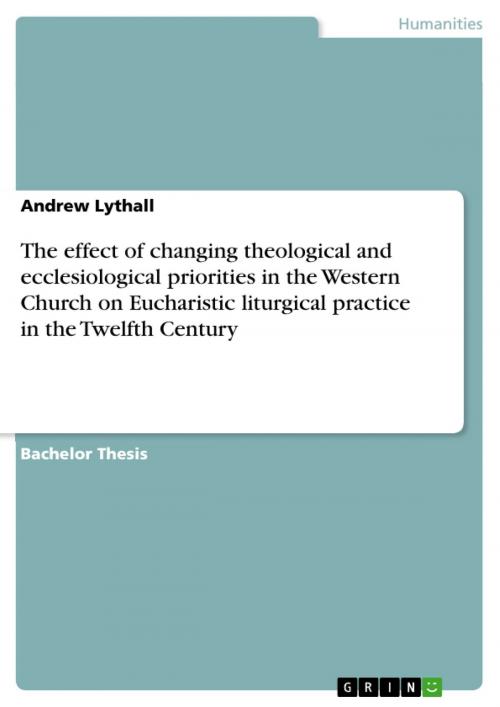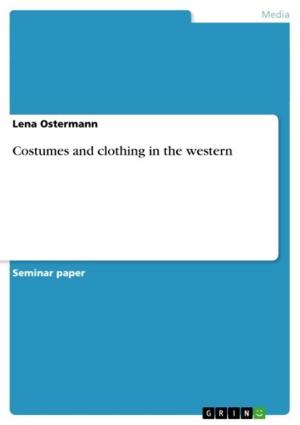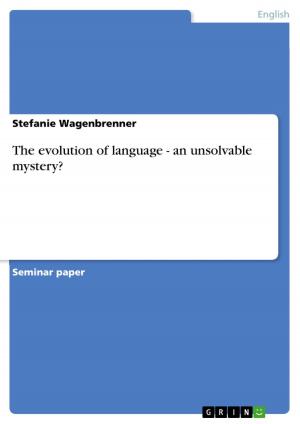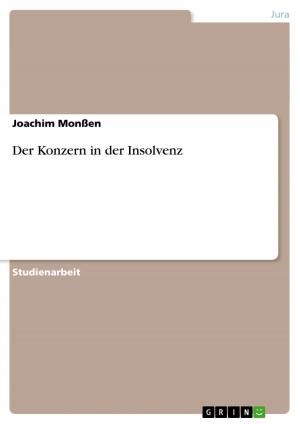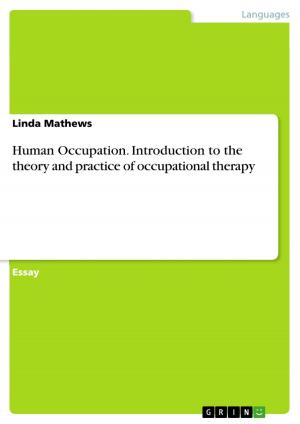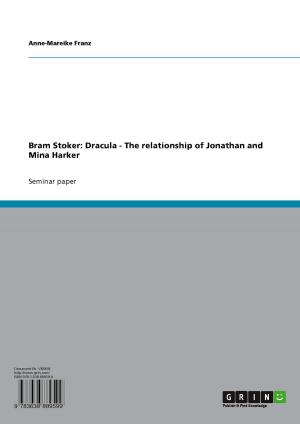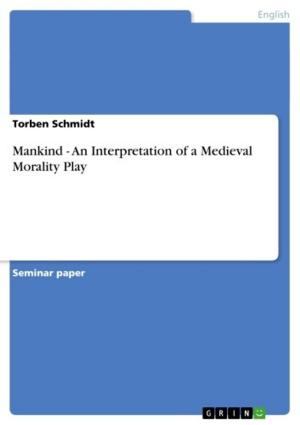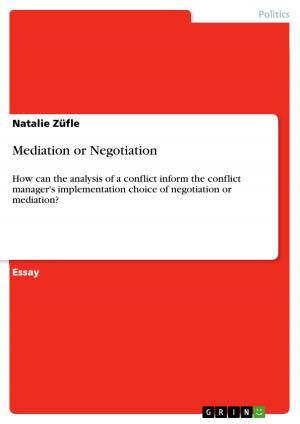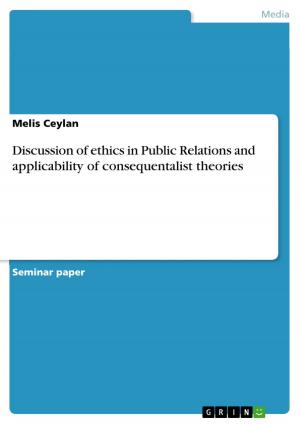The effect of changing theological and ecclesiological priorities in the Western Church on Eucharistic liturgical practice in the Twelfth Century
Nonfiction, Religion & Spirituality, Reference, History| Author: | Andrew Lythall | ISBN: | 9783640472673 |
| Publisher: | GRIN Publishing | Publication: | November 16, 2009 |
| Imprint: | GRIN Publishing | Language: | English |
| Author: | Andrew Lythall |
| ISBN: | 9783640472673 |
| Publisher: | GRIN Publishing |
| Publication: | November 16, 2009 |
| Imprint: | GRIN Publishing |
| Language: | English |
Bachelor Thesis from the year 2009 in the subject Theology - Historic Theology, Ecclesiastical History, grade: First, New College Durham, language: English, abstract: The twelfth century saw dramatic changes in the priorities of the Western Church and its doctrinal emphasis. As a result, this period saw much development in the theory and praxis of Christian theology, ecclesiology and, markedly, liturgy. As well as an increased liturgical centralisation and a vastly heightened emphasis on Eucharistic celebration, the twelfth century also saw a renewed attempt by the Church to include the laity in Eucharistic devotion, although this generally manifested itself in serving to further remove the laity from liturgical rites. The development of Eucharistic liturgy during this period was especially radical and far-reaching. Primarily, such developments concerned celebrative practicalities, although a shift in the Church's theological paradigm also led to critical theological changes. Furthermore, substantial proportions of the alterations to the Eucharistic rite made between 1100-1200 are still in use today, and continue to inform the practical theological expression of the liturgical relationship between Eucharistic rite and ceremony. The legacy of these developments thereby presents a considerable challenge for the contemporary Western Church not only in terms of its worshipping practice, but also its liturgical ethic.
Bachelor Thesis from the year 2009 in the subject Theology - Historic Theology, Ecclesiastical History, grade: First, New College Durham, language: English, abstract: The twelfth century saw dramatic changes in the priorities of the Western Church and its doctrinal emphasis. As a result, this period saw much development in the theory and praxis of Christian theology, ecclesiology and, markedly, liturgy. As well as an increased liturgical centralisation and a vastly heightened emphasis on Eucharistic celebration, the twelfth century also saw a renewed attempt by the Church to include the laity in Eucharistic devotion, although this generally manifested itself in serving to further remove the laity from liturgical rites. The development of Eucharistic liturgy during this period was especially radical and far-reaching. Primarily, such developments concerned celebrative practicalities, although a shift in the Church's theological paradigm also led to critical theological changes. Furthermore, substantial proportions of the alterations to the Eucharistic rite made between 1100-1200 are still in use today, and continue to inform the practical theological expression of the liturgical relationship between Eucharistic rite and ceremony. The legacy of these developments thereby presents a considerable challenge for the contemporary Western Church not only in terms of its worshipping practice, but also its liturgical ethic.
